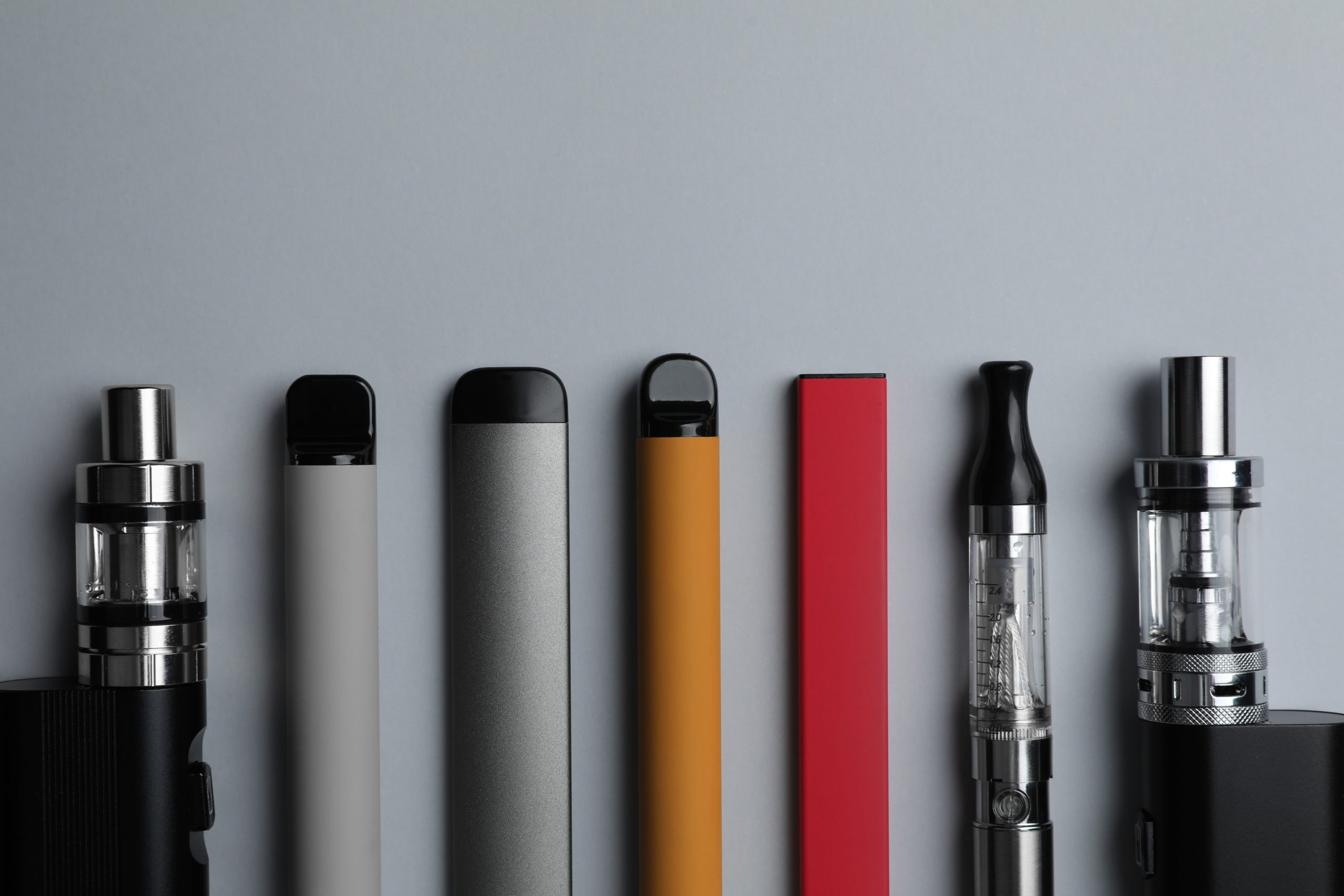E-cigarettes and vapes are electronic devices that heat a liquid and produce an aerosol. These devices come in many shapes and sizes. Among the most common are devices that look like everyday items such as regular cigarettes, pens, USB flash drives, or pipes. These devices have many different names like mods, pens, vapes, or tank systems. The liquid inside e-cigarettes and vapes contain flavoring and nicotine – often called juice or e-liquid. Depending on the device, most use a rechargeable battery or are disposable. JUUL, the most popular device on the market, finds its largest user base among minors, despite the dangers. According to the CDC, a multitude of factors make the device hazardous, but the most glaring danger is nicotine.
What Makes E-Cigarettes and Vapes Dangerous
The devices themselves are not necessarily the problem. At their core, they are simply aerosolizers. It is the juice that is the biggest issue. Most e-liquids, if not all, contain some amount of nicotine. Nicotine is an addictive drug which is in cigarettes, cigars, and other tobacco products. Nicotine has been found to potentially harm a developing brain, situating minors at an increased risk for harm. Couple that with the creation of e-liquid flavors like fruit and candy that market to a younger audiences, and the ethical problems of selling e-cigarettes and vapes become apparent. A study conducted by the CDC in 2013 showed that most youth start e-cigarette use with a flavored e-liquid. Once a person has been exposed to nicotine, it can be very challenging to quit immediately.
How E-Liquids Can Manipulate the Youth
At a time in their lives when most minors and young adults want to explore their identities and fit in with their peers, e-cigarettes and vapes pose a major risk to their long-term health. Now with the incorrect claim that e-cigarettes and vapes are a “safer” alternative to cigarette smoking, youth are even more susceptible. However, even though e-cigarettes and vapes do expose users to smaller amounts of harmful chemicals, there is little research to claim vaping is safe. In addition, since e-liquids come in many different flavors it can become easy for someone to become addicted — first to the taste, then to the nicotine. One or two hits of their favorite strawberry flavored vape can seem harmless enough, but it quickly spirals into dependency.
Notable Action Against E-cigarettes and Vapes
Since e-cigarettes and vapes have become more prominent, the FDA and various states have acted. On January 2, 2020, the Federal Drug Administration (FDA) finalized an enforcement policy over e-liquid and vapes. This policy prohibits the sale of prefilled e-cigarette cartridges of any flavor other than tobacco or menthol. California took a big stance against e-cigarettes and vaping by passing a law that will ban sale of certain flavored e-cigarettes. Prop 31, passed on November of 2022, bans the sale of menthol cigarettes and strawberry e-liquid. This law passed by California will hope to stifle the trend of vaping among minors. It can also be a steppingstone for other states to follow to combat minor vaping. On a more national level, any widespread advertising of tobacco products is prohibited.
McCune Law Group Fights for a Healthier Future for Our Youth
Any parents’ top priority is to keep their children safe. However, big tobacco companies do not share that priority. Instead, they would rather market to the young so they can keep them hooked for years, boosting their bottom line. E-cigarettes and vapes may cause serious negative health effects. The Personal Injury attorneys at McCune Law Group stand against these big companies with shady marketing principles. If you or a loved one has been manipulated by these shady companies, contact our team of national attorneys today.
Contact MLG by completing the form or calling (909) 345-8110 today for a free consultation with our professional Personal Injury team.
